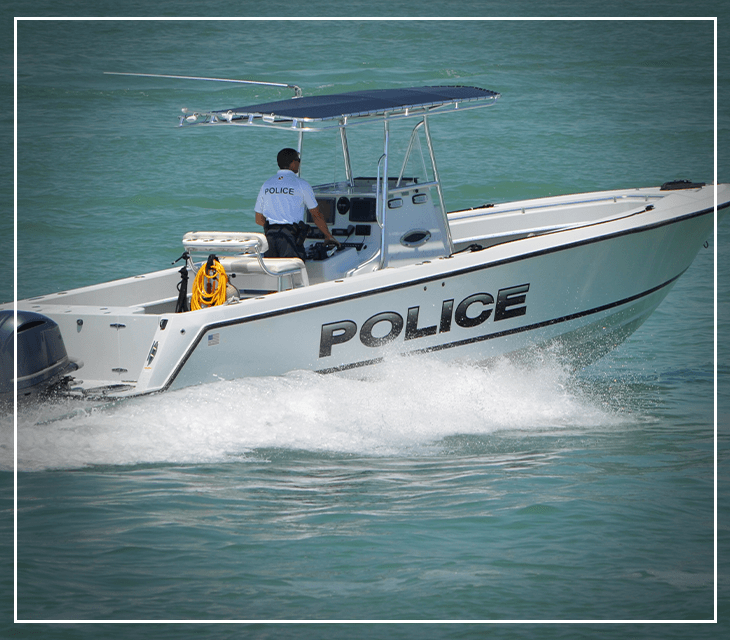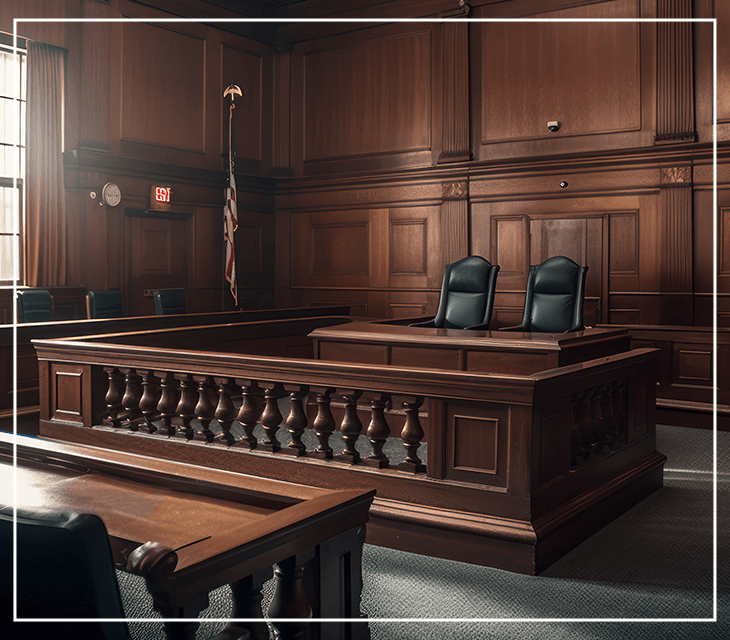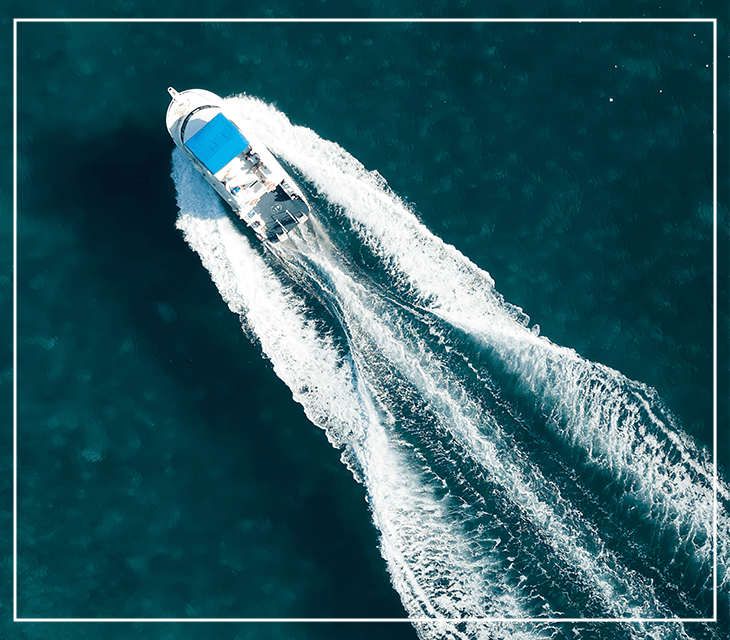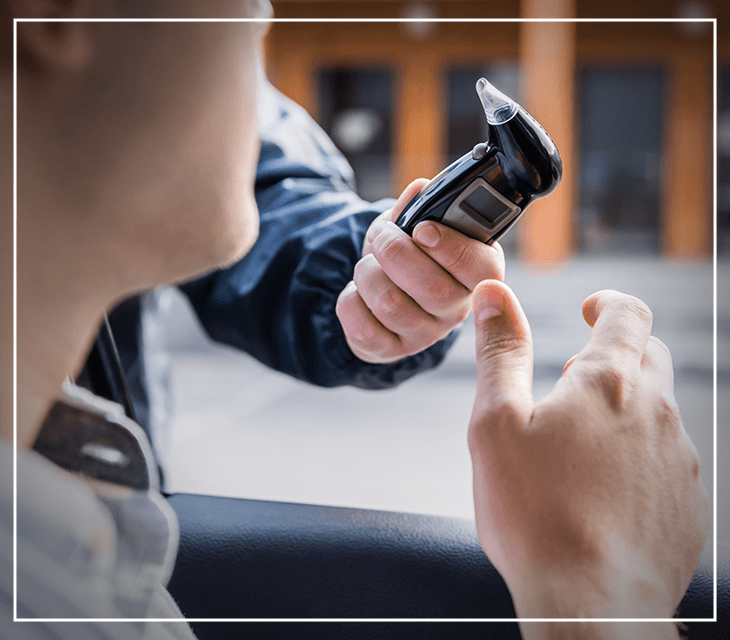
California Boating
DUI Lawyers
A Knowledgeable Legal Team Protecting Your Rights
Also known as boating under the influence, boating DUI, BUI, DUI boating, or drunk boating, boating under the influence can happen in a lake, a river, or on the ocean. Operating a boat or any watercraft while under the influence of drugs or alcohol (at or above a blood-alcohol concentration, or BAC of .08%) is much like driving a vehicle while under the influence: it is a criminal offense in the state of California.
For tenacious and experienced guidance following a criminal charge, call (562) 330-4173 and speak to our boating DUI attorneys in California today.



-
"Jeanne Normandeau is a great lawyer. She knows how the Riverside court judges work."
Jeanne Normandeau is a great lawyer. She knows how the Riverside court judges work. She will fight for you and will get you the best results after fighting with the judge and DA. She is honest and smart. Never had any problems, answers all questions and is always easy to contact. If you have the money, I recommend Jeanne. The public defender and judge will offer you the worst deal you can get.
Joe E. -
"They will fight strategically to help you win your case."
These are the best lawyers in LA/OC when it comes to DUI cases. They will fight strategically to help you win your case. My Attoney Chris Taylor was impeccable in many aspects; one he interrogated the officer causing him to fumble with his initial statement; two he is well respected within the courtroom; three he keeps you well informed with everything he is doing and what you may need to do. I can't be more pleased with the outcome of his performance. Thank you God for Taylor and Taylor!
Kendall L. -
"Christopher always made me aware of what was going on with my hearings, and got me the best outcome possible."
When you need to get a lawyer, you aren't usually in a great situation. I wasn't at least. Christopher and his team never made me feel ashamed, they just help me get through a situation where sh*t happens. Christopher always made me aware of what was going on with my hearings, and got me the best outcome possible. He made things easy to understand, helped with the paperwork, and I while I *hope* to not have to seek his services again, I would highly recommend him and his team for anyone needing a lawyer!
Jessica S. -
"Mrs. Normandeau is by far the hardest-working and most diligent attorney I have ever met. She could be reached if I ever needed to get ahold of her, whether it be email, call, or text. Not only was she available but was willing to talk about any questions."
I cannot express enough gratitude towards Taylor and Taylor's Attorney, Jeanne Normandeau. I hired Mrs. Normandeau for a VERY messy DUI case. Not only did she approach it with the utmost professionalism, but also displayed a level of empathy that is unmatched in this profession.
Mrs. Normandeau is by far the hardest-working and most diligent attorney I have ever met. She could be reached if I ever needed to get ahold of her, whether it be email, call, or text. Not only was she available but was willing to talk about any questions I had or work through any legal issues. Mrs. Normandeau's unrelenting work, extensive preparation, and tireless advocacy were instrumental in successfully dismissing my case.Bruce R. -
"Truly great team of lawyers. Handled everything the very best they could. Won DMV hearing and got my case expunged for a minor issue, so no record, as it should be! Can definitely rely on them."
Truly great team of lawyers. Handled everything the very best they could. Won DMV hearing and got my case expunged for a minor issue, so no record, as it should be! Can definitely rely on them.
Nick T. -
"I have come across many attorneys in my life and I have never been treated as well as I have her"
I have come across many attorneys in my life and I have never been treated as well as I have here. Every phone call was returned in a timely and courteous manner. The first consultation was very professional, and my attorney Chris patiently answered every question I had. In situations like this, responsiveness is key and this firm never left me feeling uninformed. I was very satisfied with the outcome of my case and would definitely recommend this firm to anyone in need of a DUI defense attorney.
Anthony D. -
"Chris not only got me down to a Wet Reckless but was able to significantly reduce the penalties I would face."
Im am so glad that I read the reviews of Taylor and Taylor after my first "incident" and immediately contacted them. Chris was great at calming my nerves as this was my 1st offense and at a .06 it was right on the line on a trial or pleading it out. Chris not only got me down to a Wet Reckless but was able to significantly reduce the penalties I would face. His whole office staff was also very helpful and he returned my calls when I had questions if not the same day, the next. I plan on having my record expunged and will be going back to him for that. He attended all DMV and court hearings on my behalf which took A LOT of stress off me. I strongly recommend him.
Suzi J. -
"Thankfully Mr. Taylor was able to help fight my case without me ever having to go to court"
You should never drink and drive anywhere, but especially don't do it in la Jolla! Cops down here have nothing better to do then make your life miserable. It is also a college town which adds assault to injury. I should take my own advice because I was recently arrested for a DUI down in La Jolla. A friend of mine referred me to Mr. Taylor's office and I am extremely glad I got into contact with them. I hardly blew over the legal limit and did perfectly fine on the sobriety tests but still was arrested. Thankfully Mr. Taylor was able to help fight my case without me ever having to go to court and I was able to have the charges dropped. Extremely professional law firm with the experience to get you the results you want.
Steven K. -
"I would recommend this firm with no qualms!"
I received counsel in a sensitive legal matter from Lawrence Taylor Sr., and his advice was spot on. I did some research and I also know that the senior Mr. Taylor is in the top echelon in his field. He has written text books on DUI and he has taught the topic in law school. I would recommend this firm with no qualms!
Jerry S. -
"I have practiced for a long time, and can tell you that when these guys walk into court the clients will fair 1000% better!"
This is a top level law firm. The Bible of DUI's comes from this firm! These are the guys other attorneys call when they are stuck on a legal issue or need some guidance. There is no other firm or DUI attorney that has the kind of experience these folks do. I have practiced for a long time, and can tell you that when these guys walk into court the clients will fair 1000% better! Most attorneys do not have trial experience, and if your case must go that direction it's scary to see non experienced dui attorneys walking in with no experience. NOT these guys. Chris Taylor is one of the best trial attorneys I have ever seen; and a force to be reckoned with. The folks I have recommended have had nothing short of positive experiences. A DUI is nothing short of stressful, and can have such an impact on a persons life between restricted or no driving privileges, classes, the cost, and the general stress of it all. This law firm handles all of these issues with such ease, and most important you know you are the most well represented client in any court or DMV hearing
Tania C.
What Are the Rules of Alcohol Consumption
On the Water?
The Harbors and Navigation Code does not bar passengers or watercraft operators from drinking alcohol or carrying open containers in the vessel. Aside from this, a BUI offense is almost identical to the California Vehicle Code’s explanation of operating a car or truck with a BAC at or above .08%. The details of the regulation can be found in California Harbors and Navigation Code Section 655:
(b) No person shall operate any vessel or manipulate water skis, an aquaplane, or a similar device while under the influence of an alcoholic beverage, any drug, or the combined influence of an alcoholic beverage and any drug. (c) No person shall operate any recreational vessel or manipulate any water skis, aquaplane, or similar device if the person has an alcohol concentration of 0.08 percent or more in his or her blood. (d) No person shall operate any vessel other than a recreational vessel if the person has an alcohol concentration of 0.04 percent or more in his or her blood.
The symptoms that primarily attract officers to the boats, and the procedures that follow are very similar to DUI cases.

With an average of 32 years of experience, a top A-V rating, and a listing in the Bar Register of Preeminent Lawyers, the firm continues to be widely recognized as California’s premier DUI defense attorney's and has twice been recognized in the American Bar Association Journal for its specialization and unique technical support staff of former law enforcement, blood-alcohol and DMV experts.


Penalties for BUI
The consequences and defenses for a BUI are much like those of a DUI, however, they are not identical. In short, fines, a jail sentence, and probation will ensue. (Refer to California Harbors and Navigation Code section 655) Also, a lesser offense with lighter punishments is a possibility for plea bargaining.
One key fact to note: a conviction for DUID is “priorable.” In other words, if you are charged with a DUI in the future (the following 10 years), a DUID will be regarded as a prior conviction. This means that if you are arrested sometime between now and 10 years from now, the court will view you as a repeat offender. The consequences for a second offense are much harsher than those of a first offense.
Any form of DUI conviction can have a significant impact on your life. Schedule a free initial consultation with our California BUI lawyers by filling out our online contact form or calling (562) 330-4173 today.